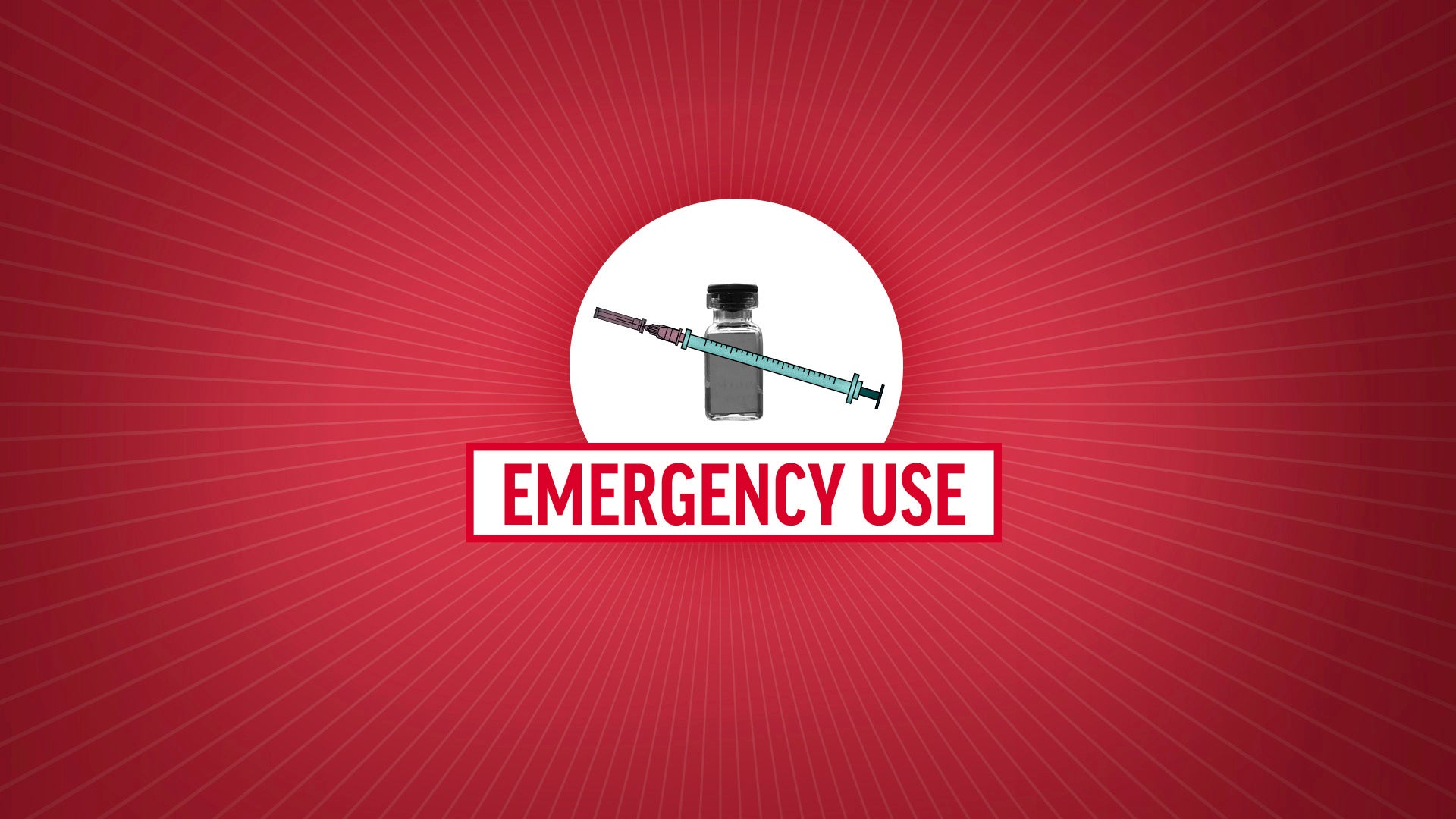What does emergency use for a COVID-19 vaccine mean?
The first COVID-19 vaccines to be given in the U.S. are expected to get a green light from regulators under a process known as emergency use authorization

Your support helps us to tell the story
From reproductive rights to climate change to Big Tech, The Independent is on the ground when the story is developing. Whether it's investigating the financials of Elon Musk's pro-Trump PAC or producing our latest documentary, 'The A Word', which shines a light on the American women fighting for reproductive rights, we know how important it is to parse out the facts from the messaging.
At such a critical moment in US history, we need reporters on the ground. Your donation allows us to keep sending journalists to speak to both sides of the story.
The Independent is trusted by Americans across the entire political spectrum. And unlike many other quality news outlets, we choose not to lock Americans out of our reporting and analysis with paywalls. We believe quality journalism should be available to everyone, paid for by those who can afford it.
Your support makes all the difference.What does emergency use of a COVID-19 vaccine mean?
It's when regulators allow shots to be given to certain people while studies of safety and effectiveness are ongoing.
Before any vaccine is permitted in the U.S., it must be reviewed by the Food and Drug Administration, which requires study in thousands of people. Normally, the process to approve a new vaccine can take about a decade. But the federal government is using various methods to dramatically speed up the process for COVID-19 vaccines.
During a health crisis, the FDA can loosen its normal scientific standards to allow emergency use of experimental drugs, devices, vaccines and other medical products. The first vaccines to get the provisional green light in the U.S. are almost certain to be made available under this process, known as emergency use authorization.
Instead of the usual requirement of “substantial evidence” of safety and effectiveness for approval, the FDA can allow products onto the market as long as their benefits are likely to outweigh their risks. It has already used its emergency powers to authorize hundreds of coronavirus tests and a handful of treatments during the pandemic.
But the agency has almost no experience granting emergency use for vaccines and has laid out extra standards it will use to make decisions on upcoming COVID-19 shots.
In October, FDA officials told vaccine makers they should have two months of safety follow-up from half of the people enrolled in their studies before requesting emergency authorization. That data is expected to be enough for FDA to allow vaccinations of certain high-risk groups, such as front-line health workers and nursing home residents.
Full approval of a vaccine will likely require six months of safety follow-up as well as extensive inspections of company manufacturing sites. The leading vaccine makers are not expected to complete that process until next spring or summer. Only then is the FDA expected to grant full approval, which would allow vaccinations of the general population.
___
The AP is answering your questions about the coronavirus in this series. Submit them at: FactCheck@AP.org.
Who will be the first to get COVID-19 vaccines?
What does COVID-19 vaccine effectiveness mean?
How can I volunteer for a COVID-19 vaccine study?